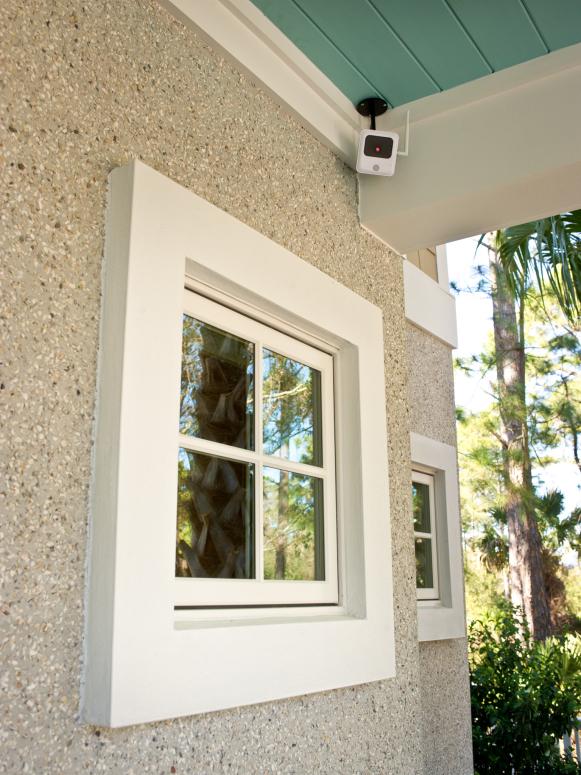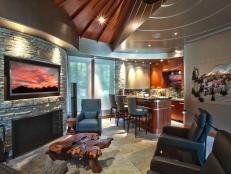Home Security and Surveillance

Eric Perry
One of the major benefits of a fully integrated home is a security and home surveillance system that protects your home, your valuables and, most importantly, you and your family. While alarms and cameras have been around for years, recent advances in technology now allow them to be operated and monitored by homeowners with a smartphone, tablet and other computer devices.
Tech Trends for Comfort and Convenience
See All Videos
Eric Perry
Advances in hardware technology have improved. "The cameras are very high tech now," says Steve Edelman, director of Integrated Electronic Solutions. "They now have pan, tilt and zoom features and can see in the dark, plus the quality is better and they have a lower cost." You can now see what the camera sees on your computer tablet or smart phone as long as your systems are linked through an app.
With these smart systems, you can unlock your door remotely to allow trusted repair people, dog walkers or house cleaners in and out of your home without tripping the alarm system that would alert authorities to investigate.
The type of system you have and the type of company you contract to provide security to your home will determine how the system works. Large security system companies often install the equipment and either monitor your cameras or record to a DVR. Smaller companies that specialize in complete home integrated systems often don't monitor the cameras. Instead, the contents are recorded to an in-home DVR for future reference.
There are also "cloud-based" systems that store the contents in a virtual data cloud much like the contents of your smartphone or tablet device. Many of these systems function in conjunction with other features of your home. "Your security system should be linked to your smoke and carbon dioxide detectors, lighting controls and motion detectors," says Michael Pope, owner of Audio Video Interiors. He suggests that a basic security system should include alarms on all doors leading into the house and at least one motion detector in the bedroom area where intruders would go first to search for valuables. Additionally, high-grade fire protection that will alert people in the house and the fire department in case there is a fire event, and alarms on the perimeter windows that can be accessed from the ground, can offer peace of mind to homeowners.
For maximum efficiency, the fully integrated system is also linked to your HVAC system. Pope says the latest systems can learn your behaviors or be set by homeowners to regulate heating and air conditioning, thus saving you money in energy costs.







































